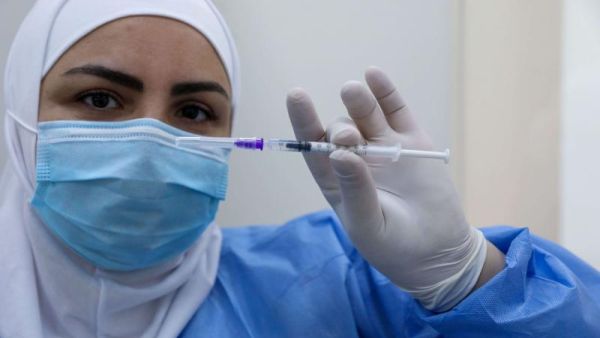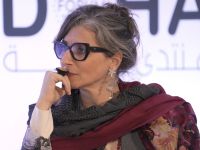Despite its catastrophic impact on the economies of the world and across-the-board, on people, urbanization, social interaction and development, Covid-19 has been particularly severe on the populations of the Middle East and different countries of the Arab world.
Their economies hit rock bottom, and mass unemployment crashing low because of the incessant lockdowns, partial closures and intermittent stoppages of businesses, public corporations and shop across the region.
Covid-19 infections and deaths have reached new heights in the Arab world's most populous state, amid warnings from health officials that the true figure of fatalities may be far higher than reportedhttps://t.co/3ktVD1NIec
— Middle East Eye (@MiddleEastEye) January 5, 2021
Dealing with Covid-19 in the Arab world has been circumspect. Many world organizations like the World Bank, which keeps a tap on the global economies suggested the Covid pandemic, starting 2019 right through to 2020 at its peak and today in 2021 was not, is generally, not a happy period for the Middle East.
Indeed, Middle East governments and Arab states have not taken the initiative during this period, with wide criticism about the fact they have not taken ‘visionary economic development’ policies and have not laid out a ‘vision’ to deal with the economic crisis brought about by the onset of Covid-19 and the repercussions it created that brought the region into a never-ending slump mode and a slippery-slope.
#BREAKING: Iraqi government delegation says death toll from fire at the Imam Al-Hussein Hospital can rise further – Al-Arabiya https://t.co/h0POOtCPhY
— Arab News (@arabnews) July 13, 2021
Whilst all Arab countries have taken the crunch and the brunt, in terms of a sliding scale, states like Lebanon and Tunisia have been hit particularly hard with the poverty line hitting 56% for the former and 21% for the latter with dilapidating health sectors as a result of the strains from the Covid infections and mismanagement.
The dive in Lebanon has been stark with their depreciating currency that is making the country almost impossible to buy medicines from abroad. But rising poverty has always been the case in Jordan for instance, Yemen, Egypt, Sudan, Algeria and Iraq, were the last three states witnessed perpetual protests even before the onset of the Covid crisis long prior to the end of 2019.
The virus may have been perpetuating the economic crisis which Sudan tried to solve in the last days of US President Donald Trump by signing a normalization deal with Israel in return for scrapping hefty debts on Khartoum by Washington.
Over 65 percent of those eligible to receive the COVID-19 vaccine in the United Arab Emirates have been fully immunized, the government announces.https://t.co/Vk0xoE1Yq3
— Al Arabiya English (@AlArabiya_Eng) April 21, 2021
Today the Arab world is divided into two broad groups of states dealing with the Covid-19 epidemic differently and in alternative shape and form. There is the Arab Gulf states plus Morocco who are dealing with the Coronavirus infection “positively” according to Ferid Belhaj, World Bank Vice President for the Middle East and North Africa. By that he means these states are instituting mass vaccination campaigns like the UAE where 70 percent and more of its population have now took the necessary doses. Mass vaccinations is good to get the economic going, restarted and replenished.
The other one is that of states who exhibited political sluggishness in dealing with the disease, there is no decisiveness in dealing with Covid-19. There is no determination in dealing with the pandemic other than lockdowns or partial lockdowns with the end result being widening the poverty trap, increasing unemployment and unwillingness to listen to people except the use of greater security apparatuses.
ARIJ Publishes Policy Paper: "Combating Disinformation in the Arab World - The COVID-19 pandemic as a case study"
— Arab Reporters for Investigative Journalism (@ARIJNetwork) December 5, 2020
To download the paper in English https://t.co/FulLdPx2UA @fnfmena pic.twitter.com/eTv3cYSKuJ
It is the state that becomes stronger in dictating lockdown, restricting working hours and generally holding the people at bay. In terms of vaccinations there are problems and haphazards. Not only is this type of state unwilling to force the people to vaccinate – although this maybe because they don’t have readily available vaccine and have to wait for the next jab batches, which is one issue. The other problem is that people don’t want to go down the vaccine centers to be jabbed. It’s the state, the people and the different contradictions between them.
There is little imagination. In some Arab countries the stress throughout the past two years of the Covid-19 period has been on “health security” rather than health protection with the state unwilling to spend more than it needs to. This stress has effectively meant lack of imagination in dealing with Covid-19 with the tools being of traditional security apparatuses that basically left shops, business owners, restaurants and cafes reeling under economic strain and bankruptcy rather think of innovative ways to replenish different business sectors and get the economy moving and people back to work with growth targets in mind.
In all fairness however, Covid-19 took the world by storm. It created much chaos to the state and paralyzed it from taking meaningful, sensible long-term action besides palliative measures that tended to be mere hiccups, and actually worsening the situation. This is clearly not the way to go forward and look to the future.








